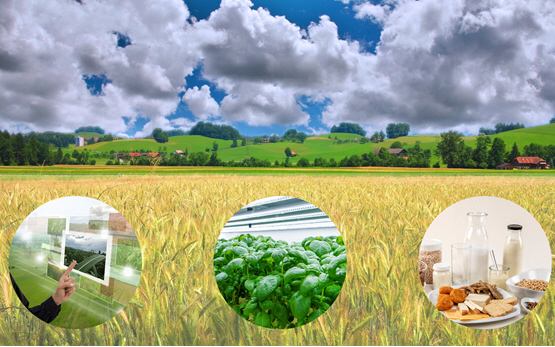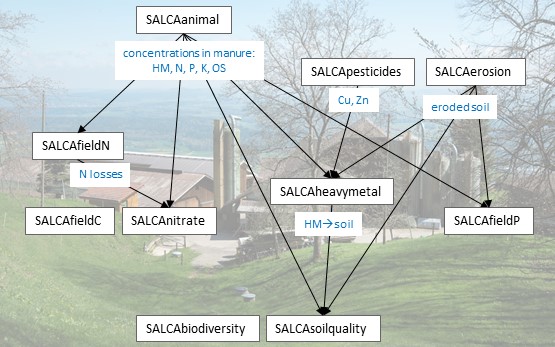Agroscope analyses important agricultural systems using a life cycle assessment method adapted to the needs of the agricultural sector in order to offer decision-making tools to policy-makers, administrators, businesspeople and practitioners.

Links
URL for direct access
SALCA is a life cycle assessment methodology tailored to agricultural products and processes.
Representative inventories are essential to implement SALCA in practice.
The sources of the environmental impacts as well as potential for improvement are identified.
Sustainable agricultural products are the prerequisite for a future-proof agricultural sector.
It’s important to account for the impacts along the entire value chain, in Switzerland and abroad.
We evaluate solutions for a healthy and sustainable way of eating.
News and further information
Never miss any more news!
Subscribe to our Newsletter.








